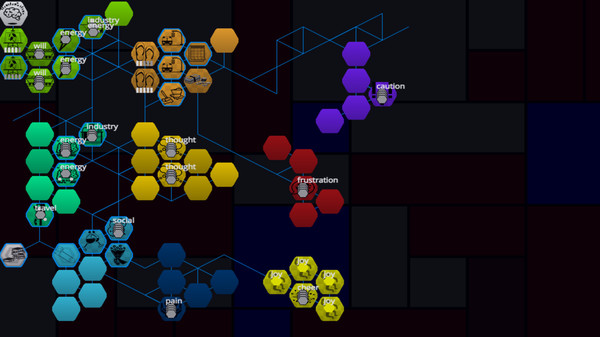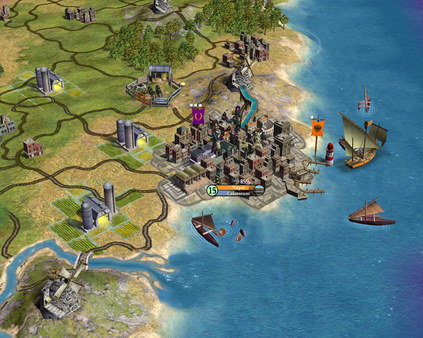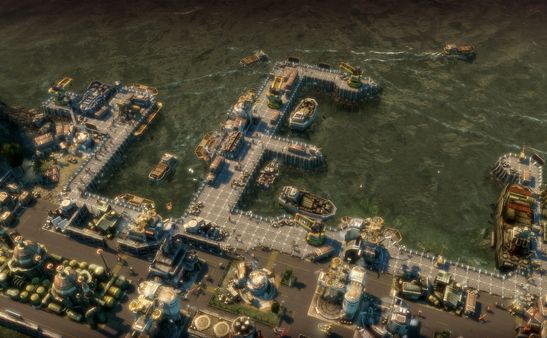Nikhil Murthy is the mind behind The Quiet Sleep, a fascinating Indie game that combines tower defense and city building ideas. The twist is – you’re developing your mind, and tackling real life events as simple as talking to others and as complex as overthrowing a local government. We’ve been playing The Quiet Sleep over the past few weeks now, and wanted to hear from Nikhil about his inspirations for the game, and his thoughts on the game development scene in India.
Tell us a bit about yourself. What got you interested in video games? (and what was the first game that you remember)?
I’ve played video games since I can remember. As a kid, I played Batman, Duck Hunt and Super Mario Bros on the SNES and Civ2 and SimCity on the PC then. When I was 8, I got a Game Boy Color and Pokemon Red version. This was at the peak of the Pokemon craze and at 8 years old, it was a big deal. I think I’ve spent more hours on that game than any other.
How did you get started with developing games?
At around 15, I had my first real programming class and I took strongly to it. At the same time, I was playing a lot of Civilization 4, so I thought that I would build a mod for it. I think I had a scenario around the Carnatic Wars planned.
Civ4 used Python as a scripting language, so I taught myself that and when doing so learned about PyGame, which was one of the few options you had back then, and ended up building my own small 2D game with that. It was an air-hockey like game with a bunch of little blobs wandering around and getting in the way. After that, I just kept making small games through high school and college.
Tell us about The Quiet Sleep? What were your inspirations for the game? Why did you choose to to make the game in this particular genre?
An idea that I had been playing around with was a combination of a tower defense game and a Settlers 2-style game. A tower defense in itself is only ever really about half a game and they tend to need something more to complete it, either some form of micro, like in Plants Vs Zombies and Space Run or a second part, like in Sanctum and Orcs Must Die. Additionally, Settlers-style games tend to feel too abstract and disconnected from the player. The two just seemed to fit together very cleanly.
I was also thinking about how to achieve better communication of and through systems in video games. We’ve seen a little bit of it in games like Papers, Please and Cart Life, but I wanted to really commit to it.
Putting the above game mechanics in a person’s mind seemed like a good way to do that and that’s how I came to build The Quiet Sleep.
If you weren’t a game developer you would be a…?
I’m actually really interested in city optimization. Doing things like syncing up traffic lights so that everyone gets home a little faster is just incredibly cool to me. Systems like cities pick up a lot of cruft over the years and eliminating those inefficiencies seems like it would be very satisfying.
What inspires you outside of gaming?
Limiting your inspirations in any way is a mistake and to do so to only games cripples you as a designer. I draw from everything that I can. The Quiet Sleep naturally draws heavily from my personal experiences, but I’ve also mined countless conversations to add pieces to the game.
I drew the story of my second story from “Songs For Women” by Frank Ocean and much of the tone from the indie rock songs “No Below” by Speedy Ortiz and “Chinatown” by Girlpool. Additionally, it took Asterios Polyp to make me realize that the game would be best as magical realism and so I then reread An Artist of the Floating World and Remains of the Day by Kazuo Ishiguro for more of the game’s feel.
None of this is meant to dismiss the importance of playing games though. The Quiet Sleep draws directly from a long tradition of tower defense games and city building games, most notably Settlers 2, but also Banished, the Anno series and Tropico. To be a good game designer, you have to draw from everything that you can.
What are your thoughts on Steam and the overwhelming number of games releasing on the platform? Do you think it makes good games, such as yours, harder to discover?
I want as few barriers between people who make games and people who play games as possible. I’m very happy that Steam has streamlined this, and if anything, I want them to do more for this. Itch.io is excellent at letting you get your game out to people, and I feel Steam could learn a few things from them about that.
I want more and more games to be made. I want more and more people to play those games. I want a greater diversity of both games and gamers and I think that the current large number of releases helps facilitate this.
Furthermore, the rising number of games is simply a consequence of how viable indie game development is these days. If the price of all these benefits is that it’s slightly harder to discover the one game that I made, that’s a price I’m happy to pay.
How would you describe your ideal game?
I don’t know. Games are evolving rapidly and I can’t even begin to predict what the future of games is going to be. I’m just excited about what comes next.
What lessons have you learned, working in the gaming industry?
Games are good at communicating systems and working in the industry has helped me identify them in everyday life. Traditional media is excellent at pushing narratives, but some things are just better understood as a system.
What’s your current viewpoint regarding the gaming scenario in India? Where do you see it heading in the next 5-10 years?
There is plenty of talent in India and there are people making really cool games out there right now. Unfortunately though, we don’t have the recognition, influence or resources of the major, or even the minor, centres of game development and it’s doubtful that we’ll match them in even 10 years. Nevertheless, we are growing and you will see more and more projects come out of India with every passing year.
What is your favorite game at the moment and what makes it special?
My favorite game is the classic 4X Sid Meier’s Alpha Centauri. There are only four things that ever felt to me like they were a tale from a fully realized alternate world instead of just being a story. The first three are Lord of the Rings, Star Wars and Dune. The fourth is SM:AC. The way it pushes its narrative is not only unique to games but unique to this game. It is, in my opinion, the greatest game of all time.
Thanks Nikhil for taking the time for giving us this interview. You can check out The Quiet Sleep on Steam, and read Nikhil’s blog over at Why Not Games.
Register with us for the best in gaming, and join us for video game discussions on our forums.







